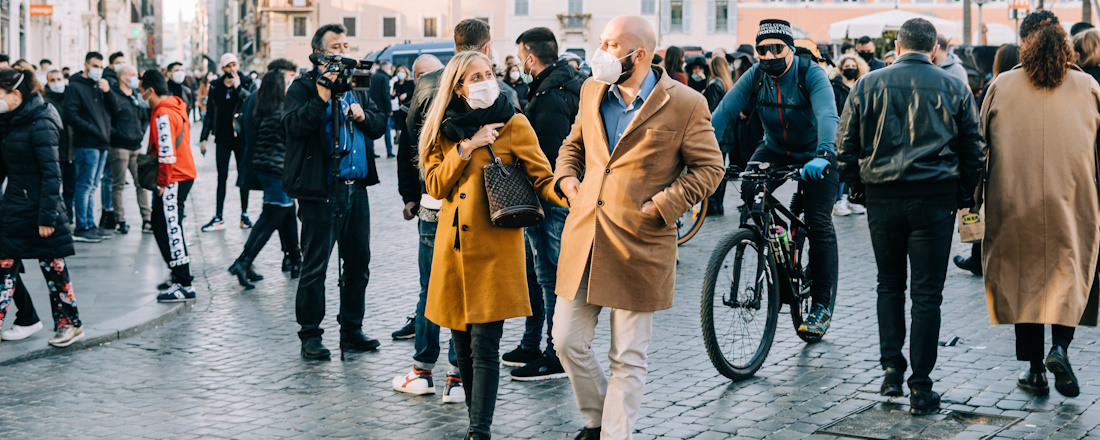Expats may find it takes some time to adjust to the local culture after moving to Italy. Settling into a new country is often challenging, particularly when cultural differences are compounded by the difficulty of learning another language. Even seemingly simple transactions such as finding a house, doctor, dentist, school and bank can seem daunting and add to a new arrival’s sense of culture shock in Italy.
The initial phase of acclimatising to Italian culture might seem like navigating through a labyrinth, but once expats overcome the initial hurdles, the rich cultural tapestry of Italy often becomes a fulfilling experience. It's a journey of discovering the finesse of Italian cuisine, the warmth of its people, the historic saga encapsulated in its architecture and the lyrical melody of the Italian language. Each day unfolds new facets of Italian traditions, from the aroma of a freshly brewed espresso to the serene ambience of an afternoon riposo.
Language in Italy
Italian is the official language of the country and is spoken by most of the country’s population, and dialects can differ vastly between regions.
There are many language schools throughout the country which provide memorable and useful insights into Italian culture. Alternatively, expats can enjoy private lessons with a hired tutor in the comfort of their own home or hotel.
Italians are also known for being expressive communicators, often using gestures and body language to emphasise their points. Being able to interpret these non-verbal cues can provide deeper insight into conversations and the attitudes of the people you are interacting with. Moreover, reciprocating with some universally understood Italian gestures can also be a fun and engaging way to immerse in the local culture.
Dress in Italy
 When one thinks of fashion, one thinks of Italy, and this connotation exists for good reason. Italy is home to several leading fashion houses. High fashion and professional dress are common in workplace settings. A person’s general body language speaks to style too, so expats should carry themselves with confidence and walk the walk. This is important among both men and women.
When one thinks of fashion, one thinks of Italy, and this connotation exists for good reason. Italy is home to several leading fashion houses. High fashion and professional dress are common in workplace settings. A person’s general body language speaks to style too, so expats should carry themselves with confidence and walk the walk. This is important among both men and women.
Meeting and greeting in Italy
Italians are more formal in addressing new acquaintances and colleagues than some expats might be used to. Someone using an informal greeting like 'ciao' (similar to 'hi' or 'bye' in English) to someone they have just met will often be interpreted as rudeness rather than friendliness. Ciao is reserved for use among friends, and a formality-neutral greeting with the same use case is 'salve' ('greetings').
When introduced to an Italian in a formal setting, a person would shake hands and say, 'Buongiorno' (good day) before 4pm or 'Buona sera' (good evening) after. Once acquainted, kisses on the cheek are often exchanged in greetings and when saying goodbye.
Titles are used when addressing people, particularly of an older generation. In the case of professionals, a director would be referred to as direttore, a doctor is dottore while an architect would be called architetto, and so on. When addressing someone without knowing their title, a man can be referred to as signore and a woman as signora.
Religion in Italy
 Most of the population of Italy is Roman Catholic and Christian, although the number of Italians who practise their religion is decreasing. Still, religion plays a major role in culture, business and how people live. Italy is a secular country, but given its ubiquitous churches and the influence of the Vatican City, religion is undeniably significant.
Most of the population of Italy is Roman Catholic and Christian, although the number of Italians who practise their religion is decreasing. Still, religion plays a major role in culture, business and how people live. Italy is a secular country, but given its ubiquitous churches and the influence of the Vatican City, religion is undeniably significant.
The essence of religion in Italy extends beyond the solemn halls of its churches into the daily lives of its people. The religious festivals, the sounding of church bells and the reverence towards religious figures all weave into the societal fabric. Expats will find that religious holidays and festivals are celebrated with fervour and tradition. Easter and Christmas are particularly significant, with unique regional observances.
Bureaucracy in Italy
While expats often complain about the bureaucratic inefficiency they encounter in the country, Italy has a strong bureaucratic tradition. Italians are aware of the problem, and public office is typically associated with inefficiency. Nevertheless, the paperwork is largely considered a necessary, if unpleasant, part of life. Expats should expect paperwork and bureaucratic procedures to take some time.
Time in Italy
Coupled with bureaucracy is Italian time: there is no rush. Italian time makes allowances for siestas, called riposo locally, which means that banks are generally only open in the mornings and shops are closed between 1pm and 3.30pm. During this time, many families take a nap and should not be disturbed by telephone calls.
Food in Italy
 Food is indeed the way to the heart in Italy, far beyond pizza and pasta. A wide variety of soup, bread, meat and fish dishes are also commonly eaten. Food is a way of creating a warm, welcoming environment, maintaining family relations and friendships, and establishing new relationships too. Expats are unlikely to enter an Italian home without being offered something to eat or drink.
Food is indeed the way to the heart in Italy, far beyond pizza and pasta. A wide variety of soup, bread, meat and fish dishes are also commonly eaten. Food is a way of creating a warm, welcoming environment, maintaining family relations and friendships, and establishing new relationships too. Expats are unlikely to enter an Italian home without being offered something to eat or drink.
The culinary journey in Italy is akin to an exploration of regional identities. Each region prides itself on its unique dishes, ingredients and culinary techniques. From the hearty meals of Tuscany to the seafood delights of Sicily, the Italian cuisine is a palette of flavours waiting to be discovered. Expats will find that meal times are not just about satiating hunger but a cherished moment of family bonding, sharing and celebrating the day's events.
Regional diversity in Italy
Italy is a tapestry of regional cultures, each with its distinct traditions, dialects and culinary delights. The difference between regions can be quite pronounced, and understanding this regional diversity is crucial for expats aiming to assimilate well. It's not just about knowing Italian culture, but the particular customs and idiosyncrasies of the region they are living in. This regional pride is a cornerstone of Italian identity, and acknowledging it shows a deeper understanding and respect for the Italian culture.
The regional diversity extends to the way of life, dialects, folklore and local festivals that mark the calendar year. Expats delving into the local culture will find a treasure trove of regional traditions. The mask festival of Venice, the truffle fair in Alba, the historical re-enactments in various towns and the vibrant folk music and dances are testaments to Italy's regional richness.
The experience of attending a local sagre (food festival), participating in a historical procession or simply enjoying the regional specialities offers a deeper appreciation of the Italian way of life, where the old and the new harmoniously coexist.
What do expats say about adjusting to Italian culture?
"The Italian culture overall is very difficult for any American to adjust to – it’s almost like going back in time 50 years." Read what Jessica has to say about culture shock in Italy in her expat interview.
"Italy has a reputation for a relaxed attitude to work and for coming to a standstill at lunch time." Read Sarah's experiences of adjusting to culture in Italy.
Further reading
►For insight into the good and bad aspects of culture and daily life, check out our Pros and Cons of Moving to Italy page.
Image credits: Piazza di Spagna by Gabriella Clare Marino, Pope Francis Greeting Crowd by Kai Pilger, Aperitivo in Venice by Chris Hahn, all on Unsplash.
Are you an expat living in Italy?
Expat Arrivals is looking for locals to contribute to this guide, and answer forum questions from others planning their move to Italy. Please contact us if you'd like to contribute.
Expat Health Insurance
Cigna Global Health Insurance.
Medical insurance specifically designed for expats. With Cigna, you won't have to rely on foreign public health care systems, which may not meet your needs. Cigna allows you to speak to a doctor on demand, for consultations or instant advice, wherever you are in the world. They also offer full cancer care across all levels of cover, and settle the cost of treatments directly with the provider.
Moving Internationally?
International Movers. Get Quotes. Compare Prices.
Sirelo has a network of more than 500 international removal companies that can move your furniture and possessions to your new home. By filling in a form, you’ll get up to 5 quotes from recommended movers. This service is free of charge and will help you select an international moving company that suits your needs and budget.
Get your free no-obligation quotes from select removal companies now!


